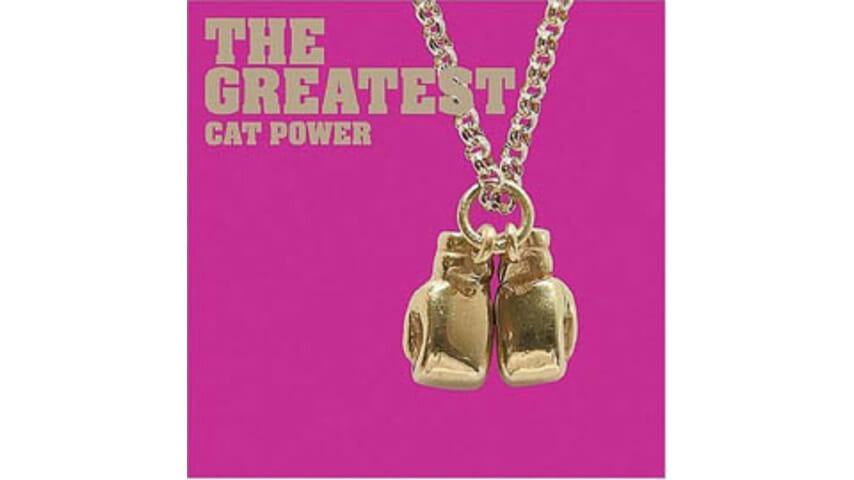Cat Power – The Greatest

Prozac Nation Goes Honky Tonk: Introspective indie-pop star crafts classic blues-bar album (but why?)
If you’re one of the “Americana Roots” types who reads this magazine, you’ll love the new Cat Power. Two albums ago on The Covers Record, singer/songwriter/sole proprietor Chan Marshall stripped back any residual punk leanings and covered an eclectic batch of standards with minimalist bravado. While still raw enough to appease her garage-rock fans, it revealed her uncanny ability to interpret “regular” soul, blues and folk songs with idiosyncratic sympathy, without falling into the gaping maw of neo-whitebread roots-revival pap.
The Greatest finds Marshall in similarly non-alternative territory, except this time she’s composed her own original standards. She’s got an “authentic” band of Memphis-soul session musicians, and she’s not afraid to embrace ragtime-piano stylings and the occasional horn section. If such stuff moves you, you’re in for a real treat.
On the other hand, if you’re one of the “College Alternative” types who reads this magazine, you may be left wondering, “Who stole my radio?” Joni Mitchell went jazz, Bob Dylan went electric, Mercury Rev went folk, and I suppose it all worked out for the best. But the sloppy production and goofy musicianship many considered a Cat Power liability (e.g. the wildly arrhythmic drumming on “Cross Bones Style”), I found a charming hallmark. All such DIY quirkiness (for better or worse) is absent from The Greatest’s production.
-

-

-

-

-

-

-

-

-

-

-

-

-

-

-

-

-

-

-

-

-

-

-

-

-

-

-

-

-

-

-

-

-

-

-

-

-

-

-

-








































